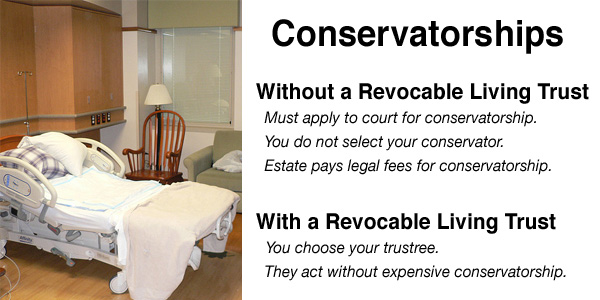
The best way to avoid a conservatorship is to plan ahead and make sure you’re protected in the event that you become incapacitated. Under California law, if a person is found to be legally incompetent, the probate court can appoint a conservator to oversee a person’s personal or financial affairs.
This is where things can get pretty ugly. Some of the times you end up with one of these two scenarios:
- The wrong person as conservator.
- Fight over who should be the conservator.
The first scenario does not really need that much explaining. You could end up with a conservator that is at geographic distance from you, which would make it harder, you could end up with someone who can’t manage your estate, or with someone you would never have chosen for your own reasons.
The second scenario is just as bad. A lengthy legal battle over who should be your conservator could drive up legal expenses, which will be paid from your estate. Additionally, Conservatorships require bi-annual accounting, which in turn is yet another expense that will be paid out of your estate.
As I said earlier, the best way to avoid a conservatorship is to plan ahead. There are sections inside of a Revocable Living Trust, where you can appoint and direct your Successor Trustee to step in and manage your estate during your incapacity for your benefit. The trustee you chose would then be able to step in and manage your estate during your incapacity for your benefit. He or She would be able to pay your bills, manage and/or reinvest your assets, and even sells assets if necessary to maintaing your estate’s liquidity.
Since the makeup of every trust, and every person is different, we highly encourage you to seek the advice of a professional to guide you in your efforts to avoid conservatorship.
